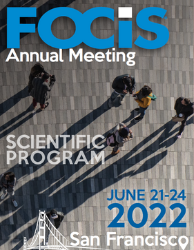Combination of ImmTOR Tolerogenic Nanoparticles and IL-2 Mutein Induces Massive Expansion of Antigen-specific Regulatory T cells
- KK
Kei Kishimoto, PhD
CSO
Selecta Biosciences
Watertown, Massachusetts, United States - HV
Hans Dieter Volk
Institute of Medical Immunology, Charité Universitätsmedizin Berlin
Berlin, Berlin, Germany
Presenting Author(s)
Chair(s)
We have previously demonstrated that ImmTOR nanoparticles encapsulating rapamycin induce selective immune tolerance to co-administered antigens. Unlike Treg-selective IL-2 muteins, ImmTOR does not expand total Tregs; however, we hypothesized that ImmTOR could act synergistically with IL-2 muteins. Here we demonstrate that a single dose of ImmTOR co-administered with IL-2 mutein resulted in increased and more durable total Tregs. We next evaluated the expansion of antigen-specific Treg in mice with adoptively-transferred ovalbumin-specific OTII T cells. As expected, ImmTOR + ovalbumin did not expand total Treg, but increased the percentage of Foxp3+ OTII cells from ~3% to ~15%. IL-2 mutein + ovalbumin resulted in a modest increase that was similar to that observed with ovalbumin alone. However, the combination of ImmTOR + IL-2 mutein + ovalbumin showed a profound synergistic effect, with ~45% of OTII cells expressing Foxp3. We tested whether ImmTOR and IL-2 mutein would enable more durable inhibition of antibody responses to co-administered AAV gene therapy vectors. Mice treated with AAV8 vector on Days 0 and 56 developed a robust anti-AAV IgG antibody response. Treatment with IL-2 mutein showed only a modest reduction in anti-AAV IgG antibodies. ImmTOR showed dose-dependent inhibition of anti-AAV antibodies; however some mice showed delayed development of antibodies. In contrast, the combination of ImmTOR + IL-2 mutein completely inhibited antibody formation through Day 117, even at sub-optimal doses of ImmTOR. These results show that the combination of ImmTOR and IL-2 mutein has the potential to provide more durable antigen-specific immune tolerance to mitigate unwanted immune responses.

